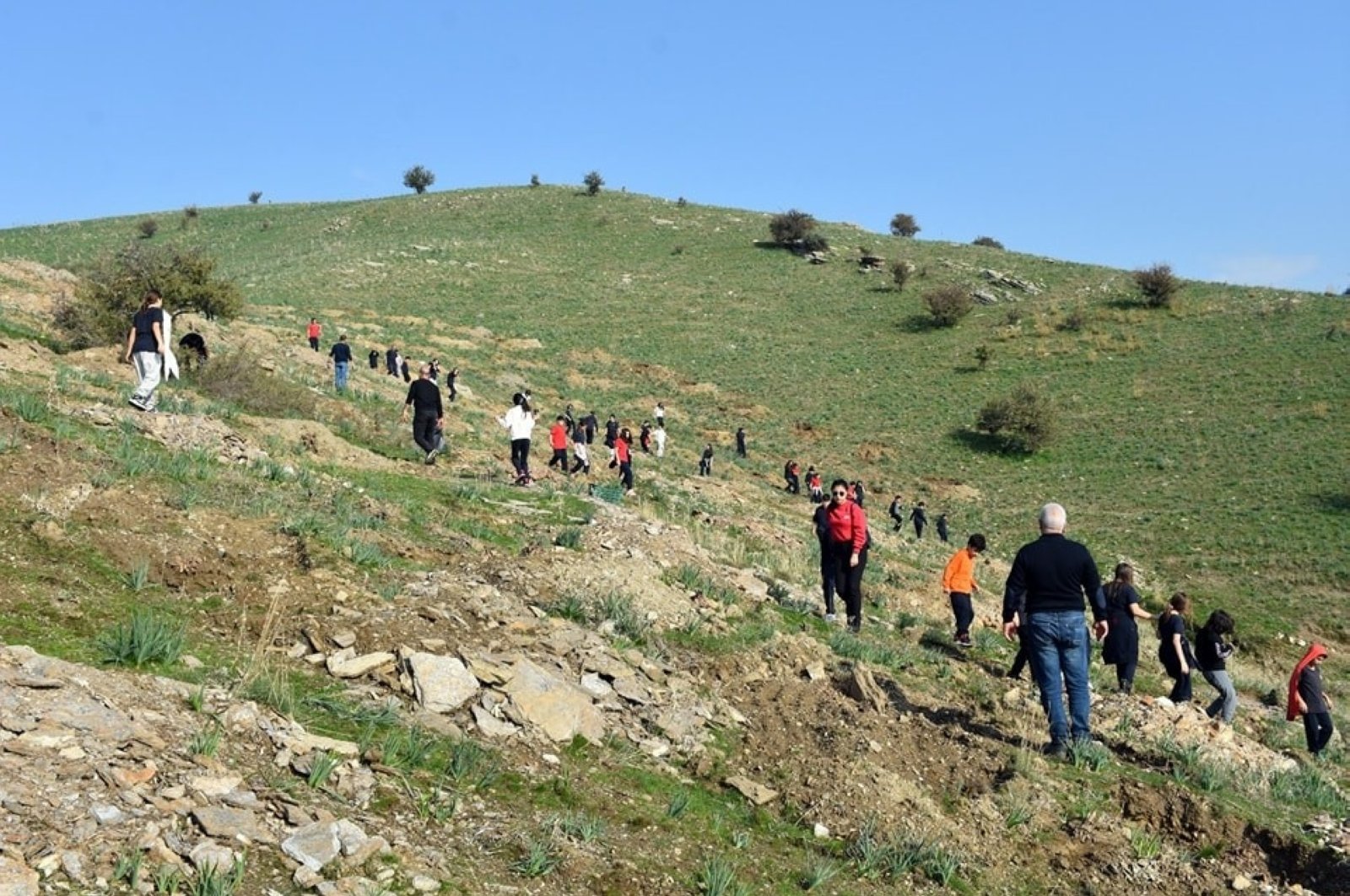
Erosion significantly diminishes soil productivity, water retention and carbon storage capacity, contributing to a perilous situation where 73.4% of the country faces the threat of desertification
An expert expressed grave concern about Türkiye's escalating desertification threat, standing at a worrisome 73.4%, primarily due to erosion exacerbated by heavy rains induced by the climate crisis.
In an exclusive statement to Anadolu Agency (AA) to mark World Soil Day, Deniz Ataç, chairman of the board of the Turkey Foundation for Combating Erosion, Afforestation and Protection of Natural Assets (TEMA), underscored the critical role of soil as the fundamental sustainer of all terrestrial life forms. He highlighted soil's pivotal function in regulating climate, being a primary food source and a fundamental component of the water cycle.
"An alarming 95% of our food originates from the soil, demonstrating its indispensable nature in sustaining life. Soil's intricate ecosystem supports a myriad of life forms, from microscopic organisms to plants, birds, reptiles and mammals," Ataç emphasized.
He further illuminated the crucial role of soil in the carbon cycle, indicating that it stores a significant portion of the world's carbon emissions, acting as a vital carbon sink. "In fact, soil harbors three times more carbon than the Earth's atmosphere, underscoring its pivotal role in mitigating climate change," Ataç added.
"At present, soil serves as humanity's largest carbon sink, making it imperative in addressing the global challenges of climate change and biodiversity loss," Ataç emphasized, urging concerted efforts toward soil conservation to combat these pressing issues.
Highlighting the critical impact of erosion on ecosystems, Ataç emphasized that the topsoil, which contains the highest organic matter, is the most densely inhabited area for living creatures. However, erosion leads to the loss of this vital topsoil.
Ataç underscored that erosion significantly diminishes soil productivity, biodiversity, water retention and carbon storage capacity, contributing to a perilous situation where 73.4% of the country faces the threat of desertification.
Attributing the surge in erosion to heavy rains intensified by the climate crisis, Ataç revealed that approximately 642 million tons of soil erode annually in the country, affecting 39% of agricultural and 54% of pasture lands.
Urban expansion exacerbates the reduction in productive agricultural lands, leading to decreased diversity and productivity in soil, ultimately posing a risk to future food security. Ataç noted that erosion-induced production loss in agricultural goods could reach up to 50%. Protecting the soil against erosion involves a crucial role played by plants in maintaining its integrity.
Areas devoid of vegetation cover and characterized by steep slopes experience the most erosion. To enhance vegetation cover, Ataç stressed the necessity of afforestation efforts, pasture improvement initiatives and soil conservation practices in agricultural lands. Implementing measures like terracing and afforestation and adopting practices such as contour plowing, reduced tillage and strip-like planting in sloping lands are vital to shield the soil from erosion.
Ataç highlighted TEMA Foundation's comprehensive efforts in soil protection and erosion combat. Besides restoring degraded lands under rural development studies, the foundation implements sustainable agricultural practices to prevent erosion, focusing primarily on afforestation activities as a key strategy to combat erosion.
The foundation has planted 38.4 million saplings across an area equivalent to 44,543 football fields and sowed 700 million acorns over an area similar to 22,000 football fields. Ataç emphasized their proactive role in advocating for necessary legal regulations to protect and manage soil and natural assets.
Expressing the Turkish people's deep affinity for soil, saplings and nature, Ataç highlighted citizens' robust support for afforestation endeavors. He noted that a significant portion of the TEMA Foundation's afforestation initiatives operates in collaboration with the General Directorate of Forestry. Additionally, Ataç invited those interested in donating saplings to reach out to the foundation through various communication channels or visit their official website for contribution details.
Underlining the pressing necessity to heighten awareness and champion the cause of soil preservation, Ataç stressed the shared responsibility in safeguarding this invaluable resource. With soil serving as a habitat for an impressive 59% of the world's terrestrial life, housing a diverse ecosystem of life forms, Ataç emphasized the critical importance of soil conservation for the planet's long-term sustainability.
